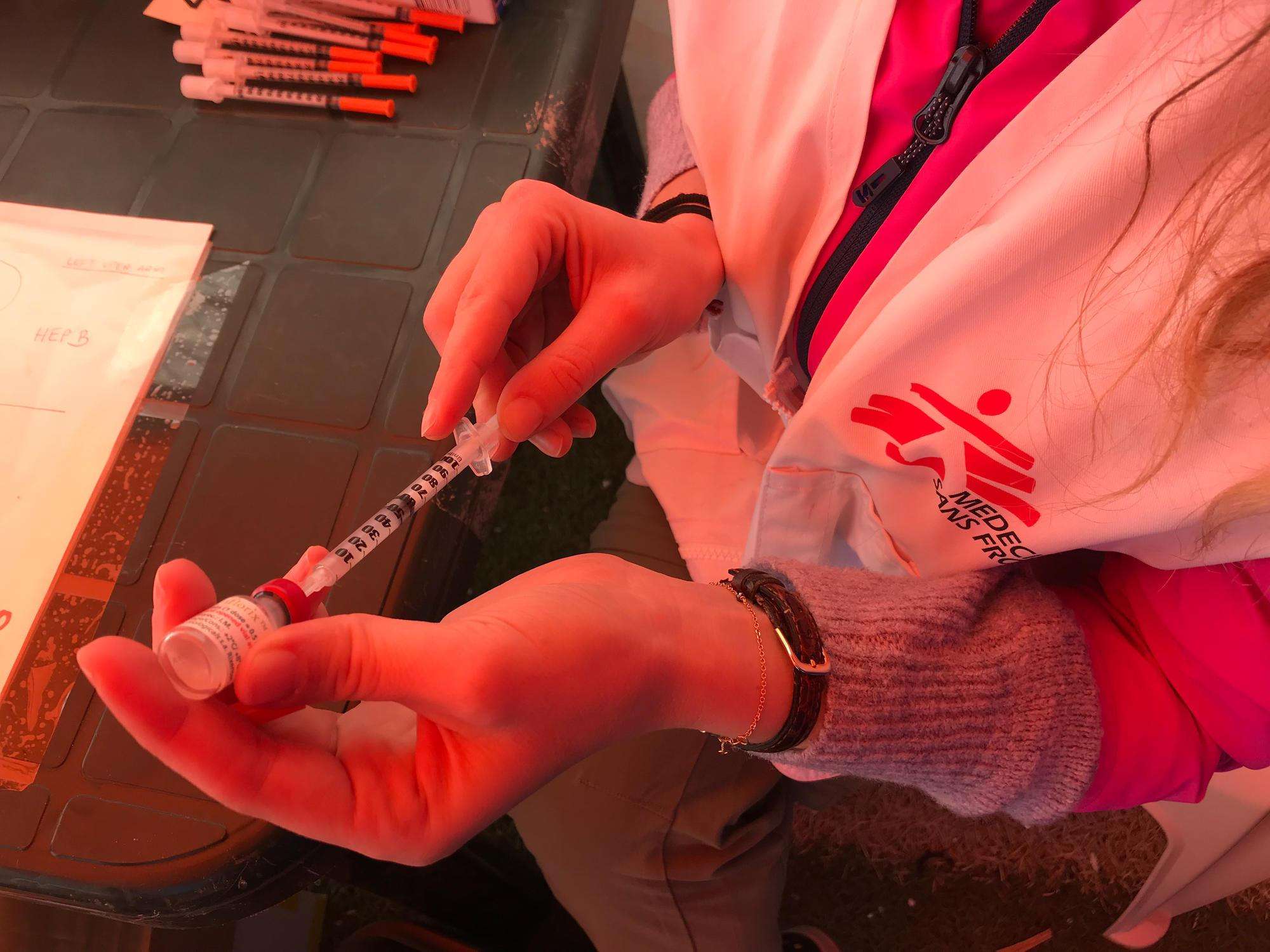Details of these agreements would allow people, governments to better negotiate fair prices for AstraZeneca’s vaccine and increase access worldwide
NEW YORK/GENEVA, NOVEMBER 23, 2020—As pharmaceutical corporation AstraZeneca and the University of Oxford released preliminary data today claiming their COVID-19 vaccine is 70 percent effective, Doctors Without Borders/Médecins Sans Frontières (MSF) is calling on the company to recommit to honoring its promise to not profit off this vaccine. Additionally, the international medical humanitarian organization is calling on AstraZeneca to make its vaccine licenses and agreements public so the vaccine’s efficacy can be properly determined and people and governments have the information they need to demand a fair price.
AstraZeneca previously said it will not profit from its COVID-19 vaccine during the pandemic and has stated prices ranging from $3 to $4 per dose—the lowest price announced for a potential COVID-19 vaccine so far. However, terms of a deal with AstraZeneca disclosed by the Financial Times show that there are limits to AstraZeneca’s public “no profit” commitments, and that the company has given itself the power to declare the pandemic over as soon as July 2021. This means that, after July 2021—a time when the pandemic is expected to still be impacting people’s lives all over the world—AstraZeneca could charge governments and other purchasers like MSF high prices for a vaccine that was entirely funded by taxpayer money. Furthermore, it was revealed that AstraZeneca may charge as much as 20 percent more than the costs associated with producing the vaccine.
Unlike most other leading COVID-19 vaccine candidates, manufacturing capacity for the AstraZeneca/Oxford vaccine is being scaled up by multiple independent vaccine manufacturing facilities globally, including by the Serum Institute of India, Fundação Oswaldo Cruz (Fiocruz), and mAbxience. In fact, the vaccine has the highest projected production capacity worldwide. This is a welcome step during a global pandemic where supplies of any COVID-19 vaccine, once proven safe and effective, should be distributed widely and equitably around the world. The vaccine is also one of few candidates that has been made available for the COVAX Facility—a vaccine financing mechanism through Gavi, the Vaccine Alliance that intends to purchase and provide COVID-19 vaccines for the 92 developing countries with which it works.
Roz Scourse, policy advisor for MSF’s Access Campaign, said today:
“MSF welcomes AstraZeneca’s commitment to sell the vaccine at a ‘no-profit’ price during the pandemic, but the reality is that it's an empty promise unless we’re able to substantiate these important claims with data.
“The pledge to sell the vaccine at cost also falls flat since it was revealed that AstraZeneca could actually charge 20 percent profits. Plus, the company has given itself the right to declare that the pandemic is over as soon as July 2021, meaning that they could charge whatever price they like after this date. These details matter, and we don’t know what else is hiding in these agreements.
“Oxford University and AstraZeneca have received over one billion dollars of public money to research, develop, and manufacture this vaccine. It’s high time that the public has in their hands all the information needed to hold them to account.
“We cannot rely on the good intentions of pharmaceutical corporations any longer during this pandemic. If AstraZeneca is truly committed to non-profit pricing and equitable access, they must open up their books now and share transparently all research and development, clinical trial, manufacturing costs, and product price breakdowns, as well as make all licenses and agreements public.”




